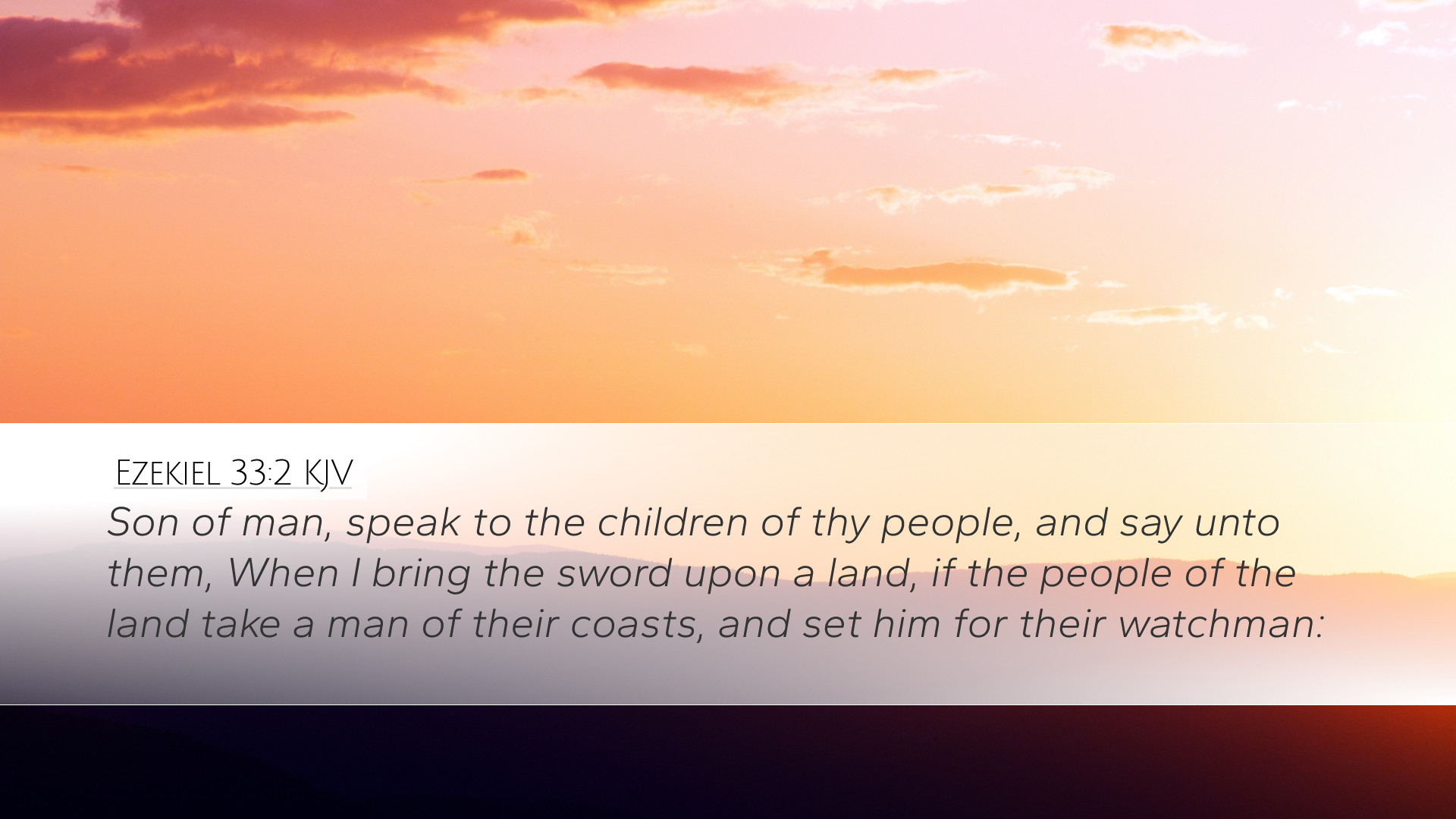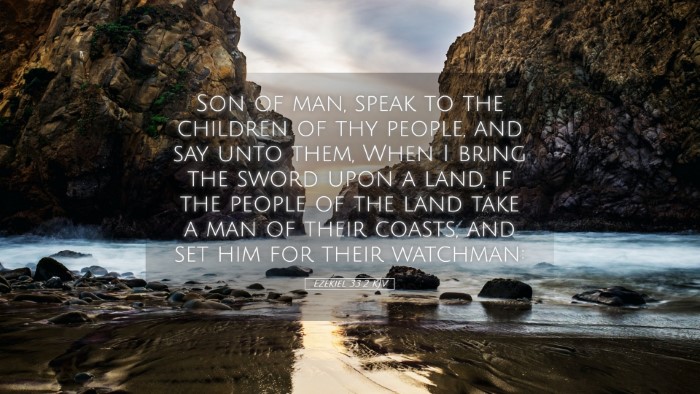Ezekiel 33:2 - Commentary Overview
Verse: "Son of man, speak to the children of thy people, and say unto them, When I bring the sword upon a land, if the people of the land take a man of their coasts, and set him for their watchman."
Introduction
The book of Ezekiel offers profound insights into the prophetic call and the responsibilities assigned to God's messengers. Ezekiel 33:2 serves as a pivotal verse that emphasizes the role of the watchman—a figure that carries significant theological implications for the people of Israel and for contemporary readers, including pastors, students, and theologians.
Contextual Analysis
In the context of Ezekiel's ministry, he was called to be a prophet during a time of impending judgment upon Israel. This passage comes after the destruction of Jerusalem, addressing the need for vigilance among God's people.
Historical Background
The historical setting of this verse reflects a crucial period for the Israelites. The Babylonian exile had profound impacts, and this prophetic word is a call to understand the impending danger and act accordingly.
The Role of the Watchman
The watchman in biblical terms signifies a sentinel or guardian. Several commentaries provide insight into the metaphorical aspects of this role:
- Matthew Henry: He emphasizes that the watchman’s duty is to warn others of danger. The people's responsibility towards their own spiritual welfare is highlighted through this metaphor.
- Albert Barnes: He points out that the watchman is accountable to God for the souls he is tasked to protect. The implications for contemporary leaders involve not only delivering messages but also guiding people towards righteousness.
- Adam Clarke: Clarke elaborates on the necessity of a watchman, particularly in perilous times, indicating that the people's reliance on strong spiritual leadership is vital for maintaining their faith and understanding of God's will.
Theological Implications
This verse encapsulates important theological themes, including responsibility, accountability, and the nature of prophetic ministry.
Responsibility to Warn
The watchman's primary responsibility is to warn the people. As discussed by various commentators:
- Henry: Points to the urgency of the message and how it reflects God's character as compassionate and just.
- Barnes: Emphasizes the dire consequences of negligence, noting that failure to warn results in the shedding of innocent blood.
- Clarke: Urges that if the watchman fails in his duty, both he and the people will face judgment.
Accountability Before God
Another layer of significance is the accountability which comes with being a watchman:
- Matthew Henry: Stresses that the watchman must give an account to God, highlighting the serious nature of spiritual leadership.
- Albert Barnes: Warns against the complacency that can arise in spiritual leaders, noting the urgent need for vigilance in their duties.
Applications for Today
The implications of Ezekiel 33:2 extend beyond the immediate historical context, offering meaningful applications for modern believers, especially those in leadership roles:
Pastoral Ministry
This passage underlines the importance of pastoral vigilance. Pastors are called to be watchmen, leading their congregations in spiritual health and safety:
- They must be proactive in warning against false teachings.
- Encouragement to equip congregants with biblical wisdom.
Theological Education
For students and theologians, this passage serves as a reminder of the responsibilities that come with understanding scripture. Theological reflection must lead to action:
- Students should strive to be informed and discerning, acting as watchmen within their communities.
- Theological frameworks should emphasize the necessity of community accountability in faith matters.
Corporate Responsibility
Every believer is called to be vigilant. This passage challenges the community of faith to support one another in the pursuit of godliness:
- Encouraging mutual accountability among believers.
- Creating a culture of openness to warn and guide one another in truth.
Conclusion
Ezekiel 33:2 serves as a powerful reminder of the biblical mandate for vigilance and proactive ministry. The role of the watchman, while rooted in a specific historical context, speaks volumes to today’s church and serves as a call to faithfully execute the responsibilities entrusted to us.


